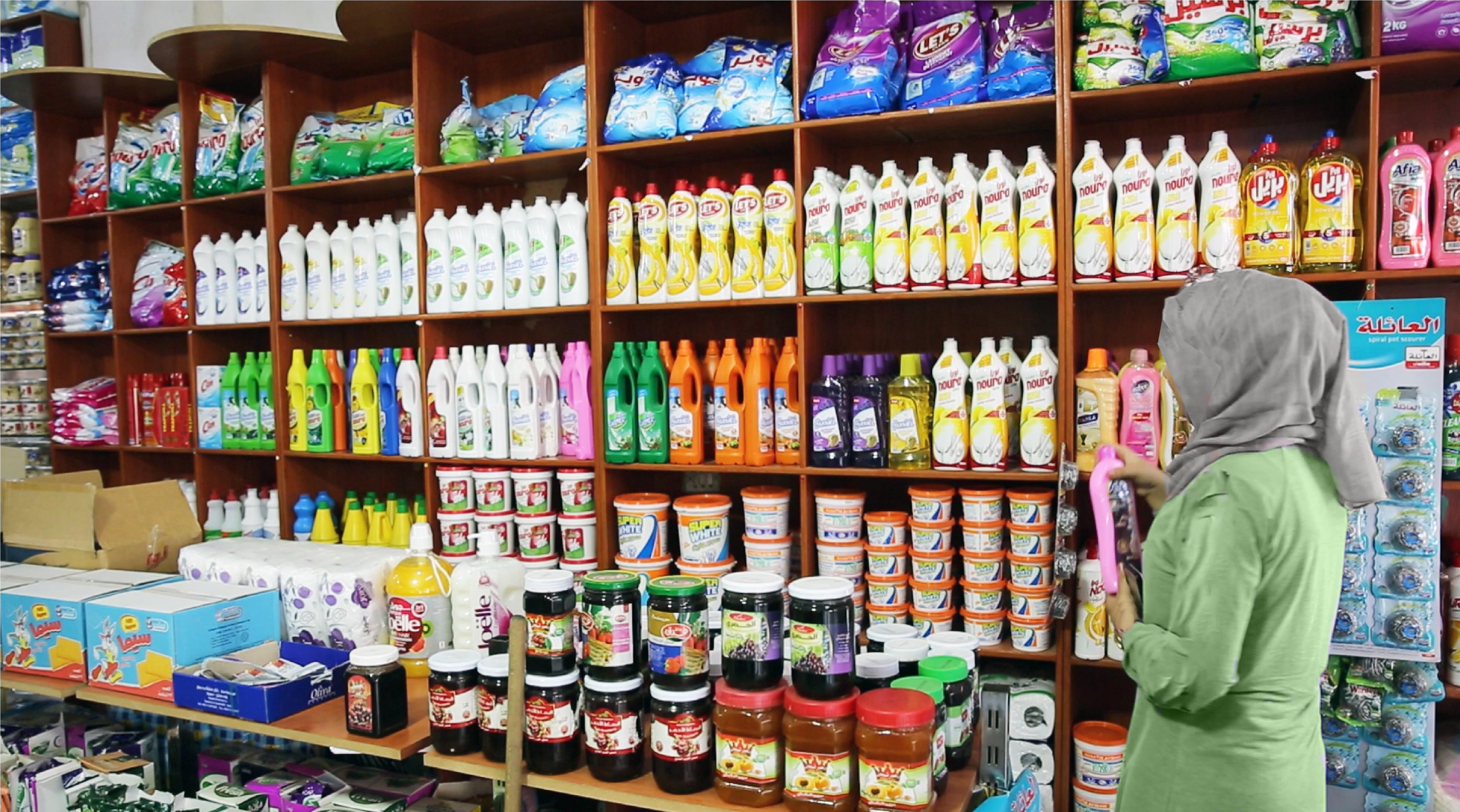UNFPA and WFP scale up the e-voucher emergency cash-based transfer mechanism targeting pregnant and lactating women (PLW) across Syria
DAMASCUS – 07 September 2020
Since the outbreak of the COVID-19 pandemic, with the first positive case announced on 22 March 2020, displaced populations are facing an exacerbated protection and poverty crisis. Those who are most at risk and in need of immediate humanitarian assistance include: pregnant and lactating women, widows, children, people with disabilities and people with chronic diseases. The ongoing economic crisis compounded by the COVID-19 pandemic has exacerbated humanitarian needs of more than 11 million people across Syria. Rapid depreciation of Syria’s currency and skyrocketing food prices have significantly contributed to plunging more people into poverty. The national average food basket in June (SYP 84,095), is up by 153% compared to December 2019.
The nine years of crisis in Syria have stretched livelihoods and services to the breaking point, especially among underserved and overburdened communities. Millions of displaced people have lost their livelihoods, been forced to take debts and are increasingly unable to meet their basic needs due to the wider regional economic crisis and the impact of COVID-19. There is increased risk of gender-based violence, including early and child marriage.
In response to the dire needs, on 2nd September 2020, UNFPA signed an agreement with WFP in Syria to scale up the e-voucher cash based transfer mechanism delivered via SCOPE card, targeting pregnant and lactating women across Syria. UNFPA will provide additional top-ups using the WFP e-voucher system to support women to buy hygiene items that they may need from designated stores in: Aleppo, Damascus, Dara’a, Deir Ez-Zor, Hama, Hassakeh, Homs, Lattakia, Quneitra, Raqqa, Rural Damascus and Tartous governorates of Syria; with potential for expansion to other affected areas. This initiative is based on a successful pilot that UNFPA and WFP have implemented in Dara'a.
With the scale-up, the programme aims to provide additional support to 70,000 extremely vulnerable families so they can purchase nutritious food and hygiene products.
The UNFPA investment in the scale-up amounts to USD 3.37 million for the period of September- December 2020.
“UNFPA is keen to contribute to the joint efforts with other UN agencies to ensure access of vulnerable women & girls to essential hygiene and dignity items of their choice. Ensuring access to livelihood opportunities for women and girls is key for building the resilience of families who suffered from the prolonged crisis and the recent COVID-19 impact,” said Karen Daduryan, UNFPA Representative in Syria.
Families are now able to choose from a range of nutritious food items and various hygiene products, including sanitary napkins, soap, shampoo and various detergents. This partnership will provide additional purchasing power to the families to help them buy items they need the most in a single trip, and with one electronic voucher, thus limiting their exposure to COVID-19. The e-vouchers, therefore, promote the well-being, safety and dignity of women and girls.
WFP provides families across Syria with an electronic voucher to buy life-saving food each month in more than 125 stores. In May 2020, UNFPA started the provision of an additional top-up to support pregnant and lactating mothers, as they are considered more susceptible to the risk of COVID-19 infection and are therefore the most vulnerable group among women of reproductive age.
The UNFPA - WFP partnership is considered to be one of the largest cash-based UNFPA initiatives being implemented by UNFPA globally.
“The COVID-19 pandemic has, in many ways, affected the health and socio-economic wellbeing of vulnerable women around the world, including in Syria. Women are shouldering a disproportionate share of unpaid homework due to persistent gender inequalities.The lockdown was a unique experience, which contributed to tensions, crystallized and exacerbated gender norms, roles and responsibilities of women and men, increased of violence and control over women and children in particular”, said Karen Daduryan, UNFPA Representative in Syria.
This initiative is one of the key pillars of re-programming that UNFPA in Syria has been implementing to meet the changing needs of women and girls, and in this particular case, the pregnant and lactating women in Syria.


